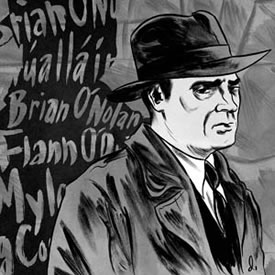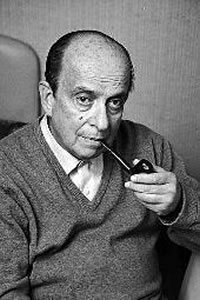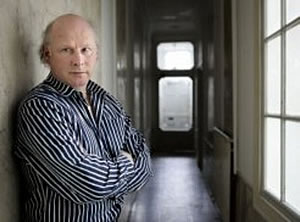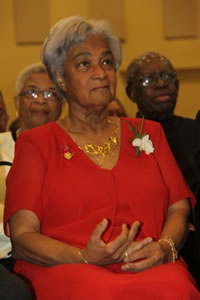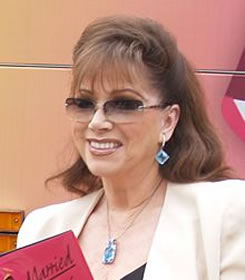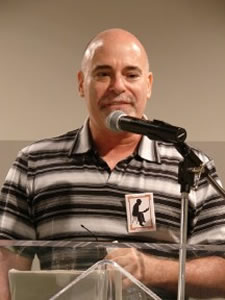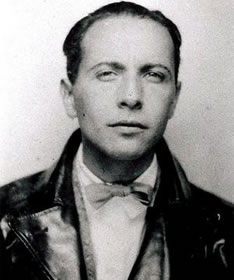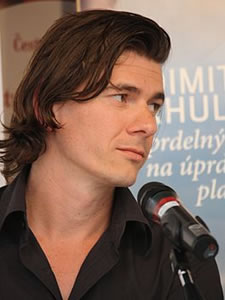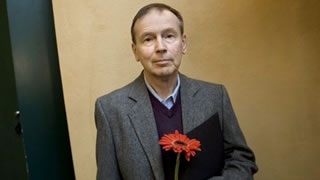De Zweedse dichter en schrijver Tomas Tranströmer krijgt dit jaar de Nobelprijs voor literatuur. Transtömer werd geboren in Stockholm op 15 april 1931. Zie ook mijn blog van 15 april 2009 en ook mijn blog van 15 april 2010.
Wolkbreuk boven het binnenland
De regen hamert op de autodaken.
Het onweer rommelt. Het verkeer mindert vaart.
Autolichten midden op de zomerdag ontstoken.
De rook slaat neer in de schoorstenen.
Alles wat leeft duikt in elkaar, sluit de ogen.
Een naar binnen gekeerde beweging, voel het leven heviger.
De auto is bijkans blind. De man stopt,
ontsteekt zijn eigen vuur en rookt
terwijl het water langs de ruiten stroomt.
Hier op een bosweg, kronkelend en afgelegen
vlakbij een meer met waterlelies en
een langgerekte berg verdwijnend in de regen.
Daarboven liggen de steenhopen
uit het ijzeren tijdperk toen dit een plek was
voor stamtwisten, een koudere Kongo
en het gevaar dreef vee en mensen bijeen
tot een gemurmel achter muren,
achter de struiken en stenen op de bergkam.
Een donkere helling, iemand die log
omhoog klimt met zijn schild op zijn rug
daaraan denkt hij terwijl de auto staat.
Het wordt licht, hij draait het raampje open.
Een vogel fluitkletst in zichzelf
in een steeds dunnere stille regen.
Het meeroppervlak staat gespannen. De onweershemel
fluistert dwars door de lelies tegen de modder.
De ramen van het bos gaan langzaam open.
Maar de donder knalt regelrecht uit de rust!
Een oorverdovende klap. En daarna de leegte
waarin de laatste druppels dalen.
In de stilte hoort hij een antwoord komen.
Van verre. Een soort ruwe kinderstem.
Vanaf de berg stijgt een geloei op.
Een gejammer van samengekitte tonen.
Een lange hese trompet uit de ijzertijd.
Misschien vanuit zijn eigen binnenste.
Vertaald door J. Bernlef
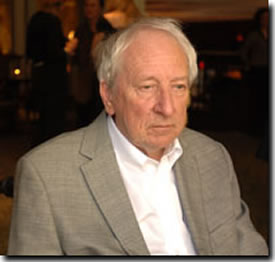
Tomas Tranströmer (Stockholm, 15 april 1931)

